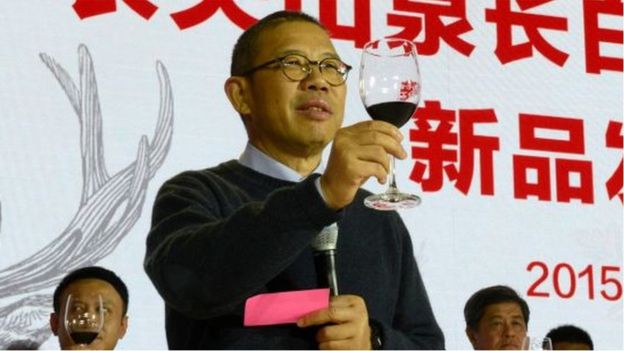
Zhong Shanshan founded Nongfu Spring in 1996 in the Zhejiang province on China’s Eastern coast.
The Bloomberg Billionaires Index now puts Mr Shanshan in top spot with wealth of $58.7bn (£46.2bn).
The recent stock market listing of his bottled water firm and a controlling stake in a vaccine maker have helped boost his fortunes.
Nicknamed the “Lone Wolf”, Mr Zhong is now Asia’s second-richest person behind India’s Mukesh Ambani, the billionaire behind Reliance Industries.
Mr Zhong now ranks 17th overall on its list of the world’s top 500 richest people.
Most of China’s new billionaires come from the tech industry. But rising tensions between China and the US over Huawei, TikTok and WeChat have pushed down valuations of Chinese tech stocks.
China’s food and grocery sector is now vying with its tech industry in producing the country’s richest business people.
In April, Mr Zhong’s Beijing Wantai Biological Pharmacy Enterprise listed on the Chinese stock market. His controlling stake in the firm saw his overall wealth jump as much as $20bn by August.
The pharma company says it has partnered with two universities to develop a candidate vaccine to fight Covid-19.


Red caps
Nongfu Spring shares jumped 54% on the first day of trading earlier this month when they were listed on the Hong Kong stock exchange.
Nongfu Spring’s red-capped bottles are sold nationwide from small stores to high-end hotels. The company also sells teas, flavoured vitamin drinks and juices.
The successful stock market listing propelled Mr Zhong into China’s top three richest people alongside Alibaba’s Mr Ma and Tencent boss Pony Ma.
But this week’s downturn for tech stocks saw the Chinese tycoon move up the wealth rankings.
Mr Zhong may not stay ahead of Mr Ma, who has held the top spot for the past six years, for long.
Alibaba-backed Ant Group is due to list on Chinese and Hong Kong stock exchanges next month, which will boost the tech boss’s wealth even further.
The online payments firm could net Mr Ma an estimated $28bn if the company achieves the $250bn valuation it has been targeting.
BBC


